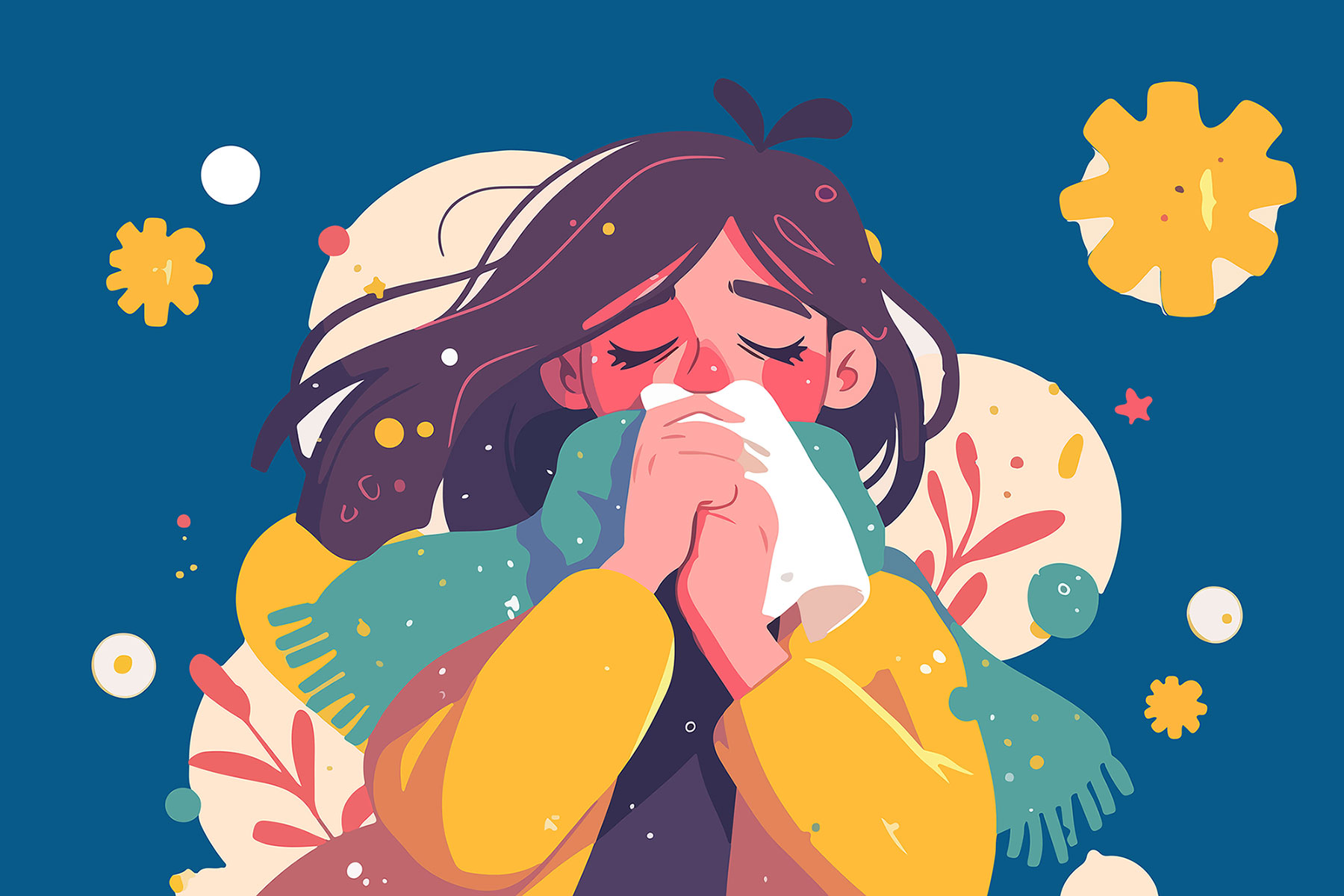It’s Flu season
by Hugo Bravo

Educate yourself on what the flu is (and isn’t)
Influenza, or the flu, is a highly contagious, virus based illness that develops in your respiratory system. Flu viruses spread by tiny droplets released when you cough, sneeze, or talk. These droplets travel and infect others through their mouth or nose. You can also catch the flu by touching an object that has the virus on it and then touching your nose or mouth; flu viruses can live on surfaces for up to 24 hours
Most people can get over the flu with time and rest, but children, the elderly, and pregnant women can develop serious complications from it. Flu breakouts are more common in the fall and winter seasons because we tend to stay inside and gather for Thanksgiving, Christmas, and New Year’s. However, it is possible to catch the flu at any time of the year.
Although influenza and the common cold share symptoms, such as runny noses and sneezing, the flu is much more dangerous and tends to last longer. A “stomach flu” is also not the same thing as influenza. What we tend to call a stomach flu is a virus that affects your gastrointestinal system, usually caused by consuming contaminated food or water.
COMMON FLU SYMPTOMS
Coughing, Sore Throat, Fever, Chills, Runny Nose, Body Aches, Fatigue
DO YOU HAVE THE FLU?
Follow these tips to reduce symptoms and keep others from getting sick:
STAY HOME
How many times have we heard about the flu going around at the office or in the classroom? If you have the flu, it’s important that you stay home and rest, especially while you are contagious. Adults are contagious until around three to five days from when the first symptoms appear; children can be contagious for up to seven days. If possible, set aside a room in your home for yourself to recover.
DRINK UP
Start taking extra liquids at the first sign of the flu. Dehydration is very serious and must be avoided during any sickness. Mild dehydration can be treated at home, but severe cases may require immediate hospitalization. Clear fluids like water and broth work best against dehydration, but electrolyte heavy drinks like Pedialyte or Gatorade can also help.
KEEP IT CLEAN
The easiest way to prevent the spread of the flu virus is to practice good hygiene. Wash your hands frequently with soap and water, and cough or sneeze into a tissue or your upper arm or elbow crease (not your bare hands). If soap and water aren’t available, use an alcohol based hand sanitizer.
USE THE RIGHT TREATMENTS
Treat fevers and coughs with over the counter medicine. Stronger antiviral medications such as oseltamivir (Tamiflu) and zanamivir (Relenza) must be prescribed and can reduce the duration and lessen the severity of the flu. These medications work better when taken within 48 hours of symptoms appearing.
CONSIDER THE FLU SHOT
Flu vaccines (and vaccines in general) have been a topic of discussion for years. Many individuals make it a point to get vaccinated for the flu every fall/winter season to combat new, evolving flu strains. Others feel that a vaccine is unnecessary, especially if they never get sick or experience serious symptoms. Talk to your doctor about how you and your family should approach getting the flu vaccine. It does not guarantee that you will never catch the flu, but experts agree that it will help you avoid the most serious symptoms and common flu related complications.

